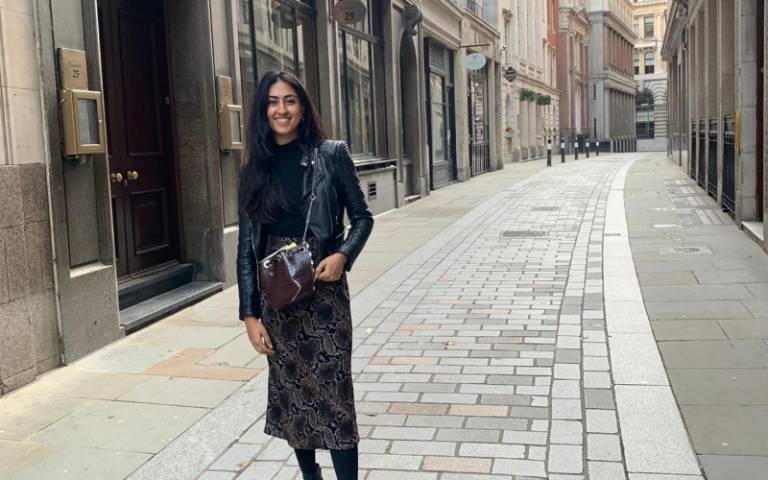Spotlight on Farah Khokhar, IGP Research Intern
21 May 2021
Read about Farah's experience of her internship with the IGP, what she has been working on, and what prosperity means to her

“I always thought of prosperity as a hope for a better future, but now I think prosperity is more about creating a better future, making changes in our lives and building infrastructure and systems that facilitate those impactful changes.
What interested you about the internship opportunity at the Institute for Global Prosperity (IGP) and what were you doing before you joined us?
I am currently studying Human Rights for my masters at UCL. I decided to apply for the internship for a myriad of reasons but mostly to learn about research outside of the student sphere. Learning about coding, writing one-pagers, literature reviews, being involved in larger projects that all involve research was really appealing to me.
Can you tell us about your experience at the IGP and what you have been working on?
I have really enjoyed my experience at IGP. I have worked on so many interesting projects such as Good Life Euston where I worked with Citizens Social Scientists and other colleagues to determine and research what constitutes as the good life to citizens in Euston. I have also worked with colleagues on writing strategic maps for the World Economic Forum, written blogs, and worked on Universal Basic Services too.
What have you enjoyed most or are most proud to have worked on?
I have really enjoyed working on the Good Life Euston project. I love the fact that I have seen a project come to full fruition during my internship — it has also been great to connect with the citizen scientists and see their passion for their community.
What does prosperity mean to you?
For me, the meaning of prosperity has changed so much since I started at IGP. I always thought of prosperity as a hope for a better future, but now I think prosperity is more about creating a better future, making changes in our lives and building infrastructure and systems that facilitate those impactful changes.
What are your plans for after the internship?
I hope to continue working for IGP or organisations similar to it. I have loved working with the team and think the work IGP does is so impactful. IGP combines policy with people which I think is a really important facet to any institute and would love to work somewhere similar to it.
What advice would you give to someone thinking about applying for a similar role?
Be honest, be excited and be eager. Working at IGP is fast-paced and exhilarating. It is so easy to have a chat with people across the institute so make sure that you get involved with anyone and everyone. Because of this networking, I was offered the role of the student co-ordinator for the BAME Bartlett forum. I connected with one of the conveners through IGP in my first ever meeting and gave some initial ideas on what to do in the forum which I am now going to put forward.
Do you have a recent book, film or podcast that you would recommend?
Dreams, Questions, Struggles: South Asian Women in Britain—it’s an amazing book detailing a comprehensive history of South Asian women in Britain: a story that rarely gets publicity or airtime.
Where is your favourite place?
A country walk in my village in Cambridge!
You can read Farah's blog on Manifesting Inclusive Practices and Closing the Participation Gaps: IGP’s Work on Ensuring Livelihood Security on Seriously Diffferent
 Close
Close

